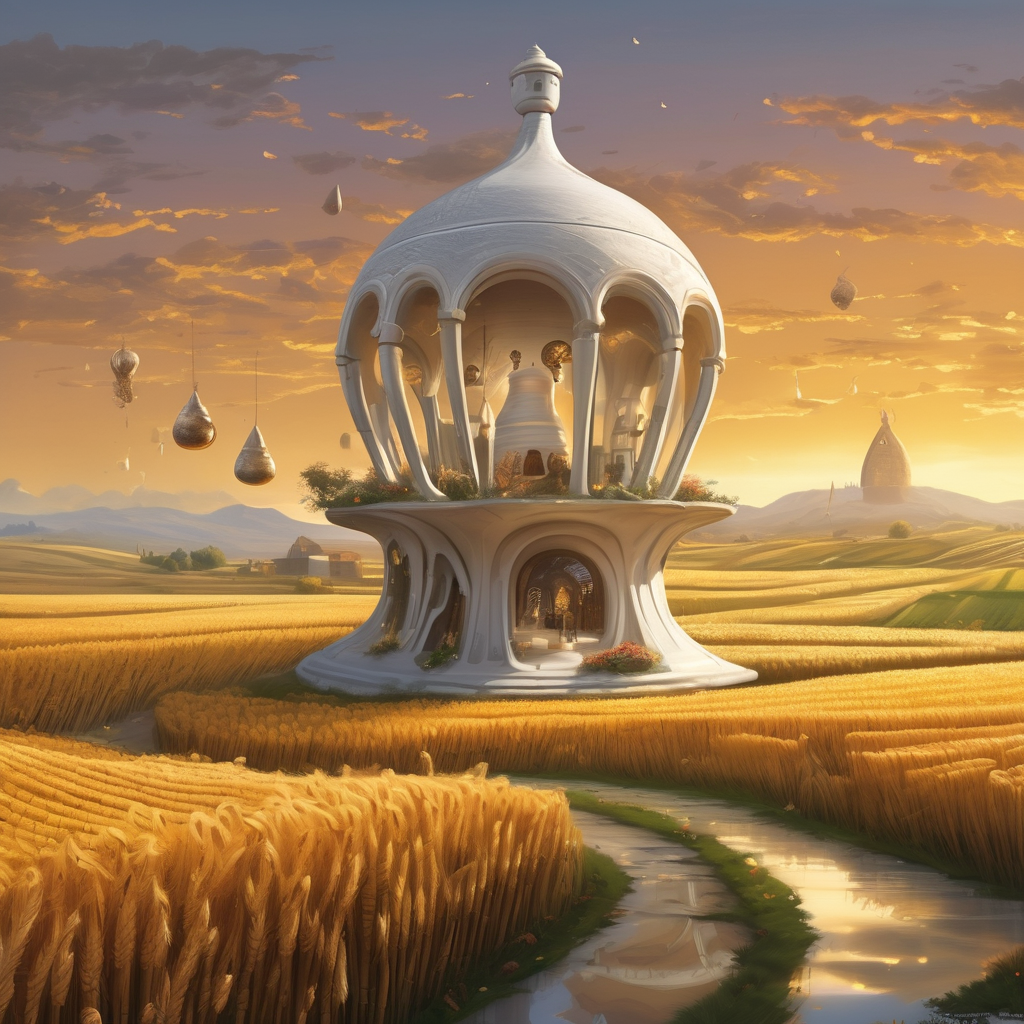The morning Europa Station manifested above the wheat fields, Grandmother Olea stopped kneading her sourdough and whispered the old words. Not prayers exactly, but algorithms—ancient recipes of intention that her own grandmother had taught her when the stations first began appearing after the Great Silence.
“Butter, salt, memory of rain,” she murmured, pressing her weathered palm against the dough. “Three rotations clockwise, one counter. This is how we speak to them.”
Her granddaughter Mira watched from the doorway, still in her nightgown, clutching a jar of preserved plums. The station hung like a vast ceramic bell in the sky, its surface rippling with equations that looked almost like Arabic calligraphy, if you squinted just right.
“Is it true they’re dying?” Mira asked.
“Everything dies,” Olea said, but her voice caught. She’d been twelve when the first station arrived, bringing with it the gift of the growing algorithms—the sacred patterns that made crops flourish even in drought, that taught women to weave moonlight into fishing nets, that showed the village blacksmith how to forge tools that never dulled.
But now only Europa remained. The others had flickered out one by one over the decades, their mathematical songs growing quiet, their gifts receding like tide.
The baker’s son, Tomás, burst through the door without knocking. “Señora Olea! The station is… it’s crying!”
They rushed outside. Indeed, silver tears fell from Europa Station, each droplet containing a perfect Fibonacci spiral. Where they struck the earth, peculiar flowers bloomed instantly—not quite roses, not quite equations, but something between the two.
“The last algorithm,” Olea breathed. She recognized it from the old stories. Europa Station was offering its final gift, the one pattern that contained all others, the recipe for keeping wonder alive even after the stations were gone.
She grabbed Mira’s hand. “Quick, child. Get every bowl, every cup, every thimble in the house.”
They worked through the morning, the whole village joining them, collecting the silver tears. Olea showed them how to mix the liquid with ordinary things—breadcrumbs, crushed mint, children’s laughter, the sound of church bells recorded on her daughter’s phone. The resulting paste could be painted on walls, on skin, on the inside of eyelids.
“What does it do?” the mayor asked, suspicious as always.
Olea smiled, her fingers still sticky with the sacred mixture. “It teaches us to be our own stations. To find the algorithms in everyday things—in how we fold laundry, in the path we take to market, in the way we hold each other during thunderstorms.”
By sunset, Europa Station had grown translucent. Through its fading walls, they could see impossible things: libraries of condensed starlight, gardens where mathematics grew on trees, beings made entirely of interconnected recipes and phone numbers of people who had been loved.
Tomás painted the last of the algorithm on his mother’s gravestone. Mira drew it on the wings of paper airplanes. Olea returned to her kitchen and worked it into her sourdough, the pattern becoming part of the bread’s memory, to be passed on with every shared meal, every recipe taught, every moment of quiet wonder in an ordinary day.
When Europa Station finally vanished at midnight, it left behind only a faint smell of cardamom and the soft sound of computational rain. But in every house in the village, in every heart that had received the pattern, something new was beginning to grow—not magic exactly, not technology precisely, but that rare thing that lives in the space between the measurable and the mysterious.
Olea tucked Mira into bed, kissing her forehead where she’d drawn a small spiral in silver.
“Will we forget?” Mira asked sleepily.
“No, my heart. That’s what the last algorithm does. It makes us remember that we were always the magic. The stations just came to remind us how to see it.”
Outside, the wheat fields swayed in patterns that had never been noticed before, each stalk following an ancient choreography that had been there all along, waiting for eyes that knew how to read the dance.

Leave a Reply